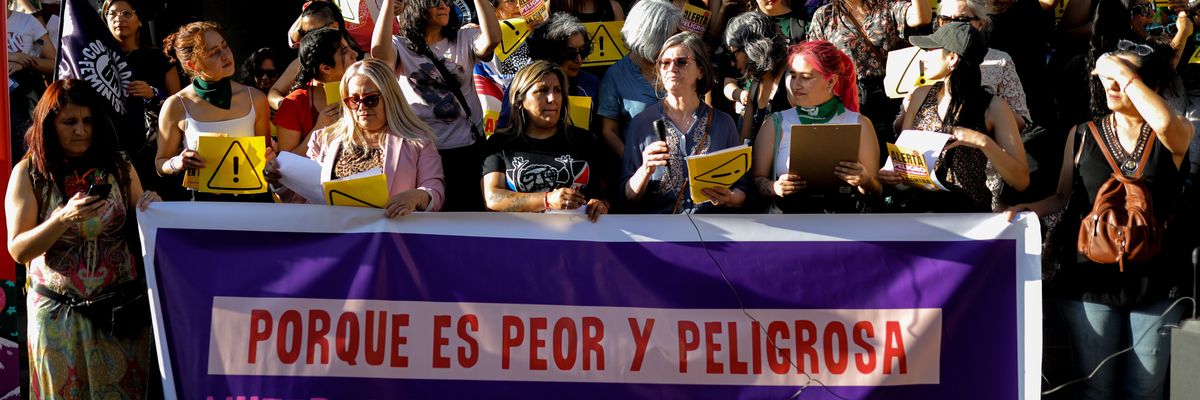Chilean voters on Sunday rejected a proposed right-wing constitution that would have further weakened abortion rights and allowed the private sector to extend its reach in the country's healthcare, education, and pension systems.
Sunday's vote marks the second time in as many years that Chileans have spurned a replacement for the current constitution, which was drafted during Gen. Augusto Pinochet's murderous U.S.-backed dictatorship and subsequently amended dozens of times.
Last year, after a massive far-right disinformation campaign, voters rejected a progressive constitution that would have enshrined gender equality, formally recognized the nation's Indigenous groups, strengthened workers' rights, and expanded the welfare state, including by making public colleges tuition-free.
The new proposal, crafted by elected members of a constitutional council dominated by conservatives, "placed private property rights and strict rules around immigration and abortion at its center," Reutersreported.
The proposed replacement would have slightly tweaked the current constitution to protect "the life of who is unborn," a change that observers said would have opened the door to the total criminalization of abortion. The procedure is currently legal in Chile only in cases of rape, a nonviable fetus, or a threat to the life of the mother.
Progressive International co-general coordinator David Adler warned that the proposed rewrite "threatened to enshrine an extremist neoliberal model in the country's constitution, extending Pinochet's original vision to include provisions against abortion and same-sex marriage."
Former Chilean President Michelle Bachelet, who also served as United Nations high commissioner for human rights, toldThe Associated Press that she voted against the new proposal because she prefers "something bad to something worse."
The proposal failed with 56% opposed, and Chilean President Gabriel Boric said his government would not attempt to replace the constitution a third time, ending an effort that began with an overwhelming 2020 vote in favor of rewriting the document.
"Our country will continue with the current constitution, because after two plebiscites on proposed constitutions, neither managed to represent or unite Chile in its beautiful diversity," Boric said Sunday.
Paula Ávila-Guillen, an international human rights lawyer and executive director of the Women's Equality Center (WEC), said in a statement that "Chile rejected a constitution that jeopardized the three exceptions to abortion access and would have put the lives of Chileans at risk."
WEC noted that in addition to imperiling Chileans' minimal access to abortion, the proposed replacement "included text that would have allowed pharmacies to refuse to sell the morning-after pill" and "allowed schools to reject children with single mothers under the 'institutional conscientious objection.'"
"The will of the people is clear: The majority of Chileans support reproductive healthcare and will not stand by as their rights are taken away," said Ávila-Guillen. "From Chile to Ohio, this proves that when abortion is on the ballot, protecting abortion access always wins."
